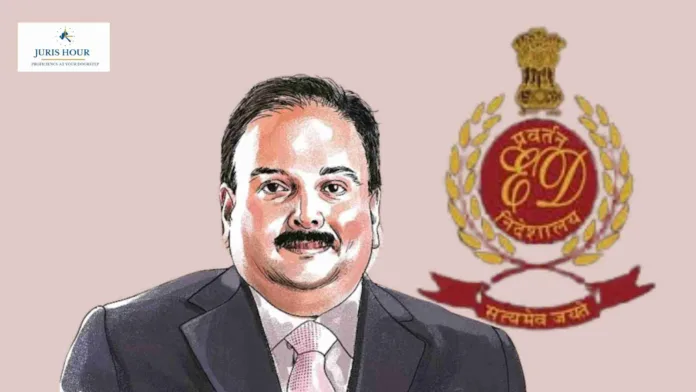The legal proceedings to designate Mehul Choksi, a key accused in the ₹13,400 crore Punjab National Bank (PNB) fraud, as a Fugitive Economic Offender (FEO) remain active in Mumbai’s special court under the Prevention of Money Laundering Act (PMLA).
Despite multiple legal challenges by Choksi, the court has consistently upheld the Enforcement Directorate’s (ED) application seeking his declaration as an FEO.
Background of the Case
Mehul Choksi, along with his nephew Nirav Modi, is accused of orchestrating a massive fraud involving fraudulent Letters of Undertaking issued by PNB officials. Choksi left India in January 2018, shortly before the scam came to light, and subsequently acquired citizenship in Antigua and Barbuda. The ED filed an application in July 2018 to declare him an FEO, aiming to confiscate his properties under the Fugitive Economic Offenders Act, 2018.
Legal Proceedings and Challenges
Choksi’s legal team has argued that the ED failed to provide sufficient evidence that he left India to evade prosecution, noting that he departed the country for medical treatment before any case was registered against him . They also contended that procedural lapses existed in the ED’s application, including issues with the verification process.
However, the Bombay High Court dismissed these arguments, stating that the ED’s application complied with all legal requirements under the FEO Act and associated rules. The court emphasized that the Act’s purpose is to deter economic offenders from evading the legal process by remaining outside India’s jurisdiction.
Current Status
The special PMLA court continues to hear the ED’s application to declare Choksi an FEO. If declared, this status would empower authorities to confiscate Choksi’s assets in India and abroad, facilitating further legal actions, including extradition efforts. Choksi’s nephew, Nirav Modi, has already been declared an FEO and is currently detained in the UK, facing extradition proceedings.
Implications
The ongoing proceedings underscore the Indian judiciary’s commitment to addressing high-profile economic offenses and ensuring that individuals cannot evade justice by remaining outside the country’s jurisdiction. The outcome of this case could set significant precedents for future actions against economic offenders.


